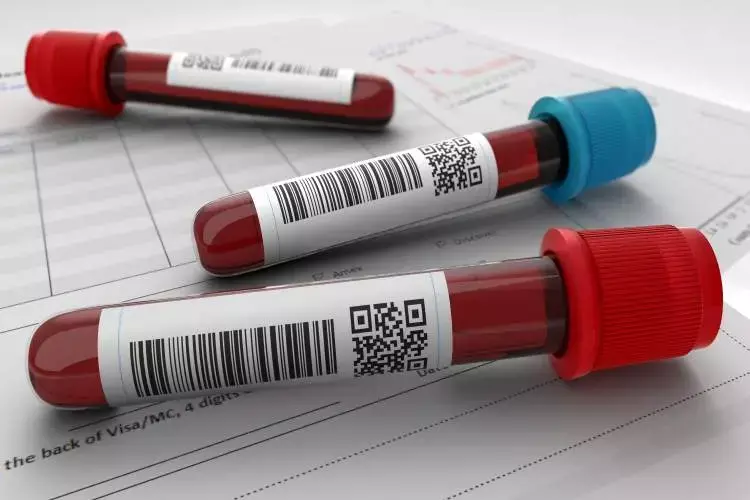- Home
- Medical news & Guidelines
- Anesthesiology
- Cardiology and CTVS
- Critical Care
- Dentistry
- Dermatology
- Diabetes and Endocrinology
- ENT
- Gastroenterology
- Medicine
- Nephrology
- Neurology
- Obstretics-Gynaecology
- Oncology
- Ophthalmology
- Orthopaedics
- Pediatrics-Neonatology
- Psychiatry
- Pulmonology
- Radiology
- Surgery
- Urology
- Laboratory Medicine
- Diet
- Nursing
- Paramedical
- Physiotherapy
- Health news
- Fact Check
- Bone Health Fact Check
- Brain Health Fact Check
- Cancer Related Fact Check
- Child Care Fact Check
- Dental and oral health fact check
- Diabetes and metabolic health fact check
- Diet and Nutrition Fact Check
- Eye and ENT Care Fact Check
- Fitness fact check
- Gut health fact check
- Heart health fact check
- Kidney health fact check
- Medical education fact check
- Men's health fact check
- Respiratory fact check
- Skin and hair care fact check
- Vaccine and Immunization fact check
- Women's health fact check
- AYUSH
- State News
- Andaman and Nicobar Islands
- Andhra Pradesh
- Arunachal Pradesh
- Assam
- Bihar
- Chandigarh
- Chattisgarh
- Dadra and Nagar Haveli
- Daman and Diu
- Delhi
- Goa
- Gujarat
- Haryana
- Himachal Pradesh
- Jammu & Kashmir
- Jharkhand
- Karnataka
- Kerala
- Ladakh
- Lakshadweep
- Madhya Pradesh
- Maharashtra
- Manipur
- Meghalaya
- Mizoram
- Nagaland
- Odisha
- Puducherry
- Punjab
- Rajasthan
- Sikkim
- Tamil Nadu
- Telangana
- Tripura
- Uttar Pradesh
- Uttrakhand
- West Bengal
- Medical Education
- Industry
Serum ferritin levels associated with acute myocardial infarction: JAPI

Maharashtra: In a new study conducted by Mahender Kumar Medisetty and his team, serum ferritin levels were shown to be associated with acute myocardial infarction (AMI). The findings of this study were published in the Journal of the Association of Physicians of India.
Recently, it was shown that there is a link between greater levels of stored iron concentration and an increase in the frequency of acute myocardial infarction. There is a shortage of information in India about the relationship between AMI and serum ferritin levels. This study was carried out in order to examine the relationship between serum ferritin levels and the risk of AMI.
The current case-control research included 60 controls and 64 patients with AMI who were under 30 years old and of either sex between May 2016 and October 2017. (group II). Randomly chosen controls were patients who visited the hospital's outpatient department for mild illnesses, those who accompanied patients, and routine health exam, recipients. On clinical evaluation, the controls showed no symptoms of AMI or coronary heart disease (CHD), and their electrocardiograms were normal (ECG). All individuals had their serum ferritin levels quantitatively measured.
The key findings of this study were as follows:
1. When compared to group II (111.8 g/L), the group I had a considerably higher mean serum ferritin level (203.5 g/L).
2. With a p-value of 0.001, patients in group I were more likely (82.9%) than those in group II (15.0%) to have blood ferritin levels below ≥150 g/L.
3. Body mass index (BMI) >25 kg/m2, serum ferritin levels >200 g/L, and high-density lipoprotein (HDL) cholesterol level <35 mg/dL were all independently and significantly associated with AMI, according to multivariate analysis.
In comparison to controls, the mean blood ferritin level in AMI patients was significantly higher. AMI was independently and significantly correlated with a history of smoking, BMI >25 kg/m2, serum ferritin levels >200 g/L, and HDL cholesterol levels <35 mg/dL, according to this multivariate analysis.
Source:
Medisetty MK, Runwal K, Phalgune DS. Relation between Serum Ferritin Level and the Risk of Acute Myocardial Infarction. J Assoc Physicians India 2022; 10.5005/japi-11001-0059
Neuroscience Masters graduate
Jacinthlyn Sylvia, a Neuroscience Master's graduate from Chennai has worked extensively in deciphering the neurobiology of cognition and motor control in aging. She also has spread-out exposure to Neurosurgery from her Bachelor’s. She is currently involved in active Neuro-Oncology research. She is an upcoming neuroscientist with a fiery passion for writing. Her news cover at Medical Dialogues feature recent discoveries and updates from the healthcare and biomedical research fields. She can be reached at editorial@medicaldialogues.in
Dr Kamal Kant Kohli-MBBS, DTCD- a chest specialist with more than 30 years of practice and a flair for writing clinical articles, Dr Kamal Kant Kohli joined Medical Dialogues as a Chief Editor of Medical News. Besides writing articles, as an editor, he proofreads and verifies all the medical content published on Medical Dialogues including those coming from journals, studies,medical conferences,guidelines etc. Email: drkohli@medicaldialogues.in. Contact no. 011-43720751


